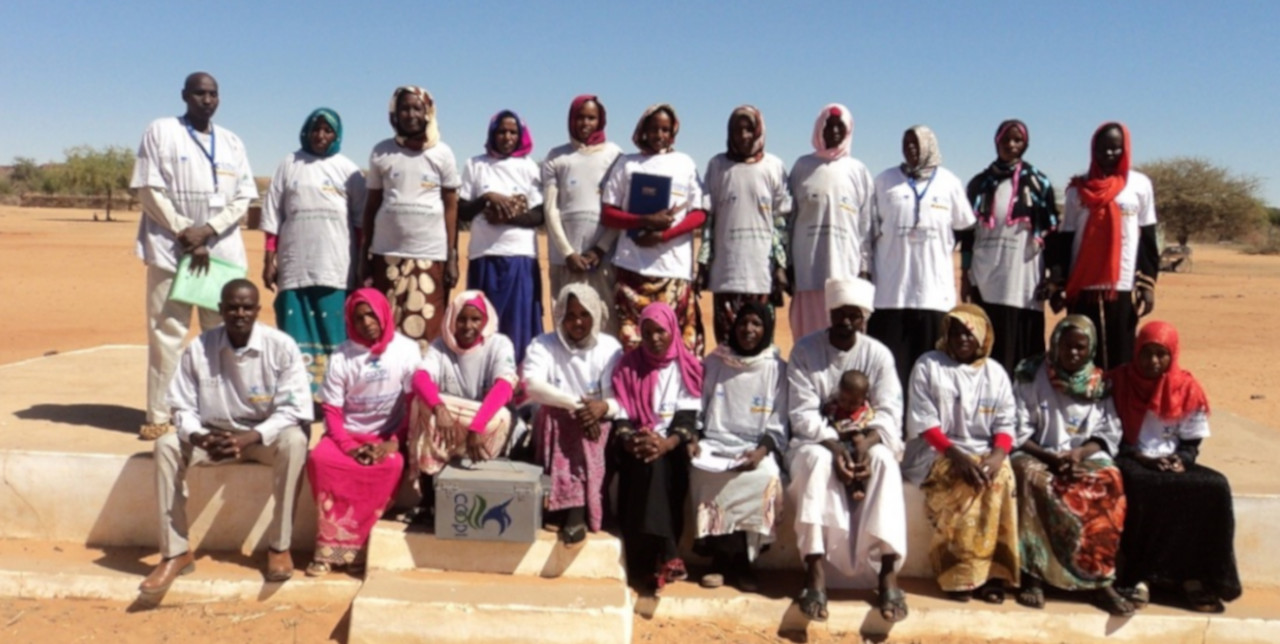06-03-2020 | di COOPI
North Darfur. Village Saving and Loans Association Groups help reduce vulnerability to shock
In December 2019, COOPI conducted a mid-term evaluation on the European Union funded project ‘Strengthening Local Communities resilience to climate change in North Darfur’, where it revealed that supporting Village Saving and Loans Association (VSLA) groups encouraged beneficiaries to diversify their incomes, thus reducing the dependence to natural resources and building resilience.
Since 2017, COOPI and the Sudanese Environmental Conservation Society (SECS) seek to support over 18,000 vulnerable people, in the area of North Darfur (Sudan), improving their resilience to climate change by prioritizing and implementing community natural resources action plans and investing in simple solutions that help to reduce pressure on natural resources. In this framework, the project targeted VSLA in saving and taking small loans, thus providing simple capital and loan facilities where formal financial services are lacking.
Such financial activities implemented enabled beneficiaries to engage in various income generating activities, including livestock fattening and trading, milk vending, handcrafts, buying and selling of cereals, trading in fresh vegetables, etc. VSLA groups have an average savings of 156,000 SDG (Sudanese pound) with each member contributing 5,200 SDG per year. Moreover, VSLA members in Marsus, in Mallah locality, reported an average monthly income of 1,500 SDG, with a 50% increase from an average income at baseline of 750 SDG/month.
The small gains from VSLA motivates the groups to think about linking their usual savings and lending activities to other livelihood related activities, like alternative cooking solutions, collective grain storage and marketing, linkage to supply of improved seeds/tools, food processing among others.
Ms Hawa Bakheet, a VSLA member in Marsus - cluster of Mallah locality, reported that her household income improved thanks to the employment of the borrowed funds in trading in the local market, rather than in collecting wood and grass from the forest. Similarly, Shama Adam Yousif, a female beneficiary of the Um Gafalla cluster, Um Kaddada locality, mentioned that the small loans she got allowed her to have more time to focus on her own small businesses and to work more in her family’s farms, instead of working long shifts as a causal laborer in the market or in other people’s farms for a lower salary. Finally, Zahara Abdel Jabar, a VSLA member in Marsus, explained that the 100 SDG weekly payment is very challenging to get. However, she added that ‘this challenge motivates the group members to work even harder’. Like Zahara, thanks to the VSLA groups, many women are now determined to improve their lives in an economic environment, where prices of daily supplies are high, goods are scarce and the competition for an available space at the local market is very stiff.
Still today, over 80% of the population in North Darfur region derive their livelihoods from natural resources (soil, water, rangeland, forests, local biodiversity etc.). However, combined effects of years of conflict and climate change resulted into an increased degradation of natural resources, growing vulnerability of local community about food and income insecurity. COOPI’s intervention is consequently an answer to this urgent challenge.




 Sudan
Sudan